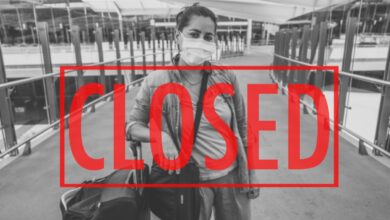A
A
A
The coronavirus pandemic has impacted nearly everyone on a global level. This especially has led to many problems, particularly for those who had been looking to travel in recent months. Several companies that make their money based on short-term reservations have been met with a large backlash with guests looking for refunds because of these canceled travel plans. This includes both Airbnb and VRBO.
The scrutiny both Airbnb and VRBO have had in recent months has been immense. The policies already in place are not as cut and dry as they could be in cases like a pandemic. Many people opted to cancel their trips and have been dealing with both companies for months to get refunds or travel credit.
Read More »
One of the main issues is the actual date that guests decided to cancel their trip. If they canceled too soon without waiting, they might not have been qualified to receive the refund. These technicalities and variation in forms of
vacation insurance has been the most frustrating component for many would be or stranded travelers.
Because of this confusion, many travelers have decided not to take any risks at all and just not plan for any upcoming trips in fear that they might not get a refund. These short-term rental companies also have to appease their host’s wishes since they are a major reason for their overall success.
Airbnb’s policy requires specific documentation to explain why a guest is unable to travel on the requested trip. This is part of the “extenuating circumstances” policy and opens up avenues for guests to get credit for bookings made before March 14.
Both Airbnb and VRBO have received a large amount of backlash from angry customers via social media and direct communication. This has forced many travelers to consider taking legal action of some kind. Airbnb is said to have had more than $1 billion worth of cancellations. Ultimately, the short-term rental companies did not want to make travelers choose between their health and the money. Currently, Airbnb will cover guests who have arrangements between now and the end of July.
Because of some of these refunds that have come back to the customers, hosts have been hit financially too. The company did give these hosts a total of about $250 million to help to compensate for the loss of bookings during this time.
VRBO has very similar policies that cover bookings made before March 13. In addition, this policy has been extended through the end of June for bookings that were canceled because of government restrictions. Any travelers who are outside of this window can get complete credit to be used in the next year. Those who aren’t eligible for a full refund and don’t want credit are encouraged to get at least half of their money back.
VRBO has been a bit more strict about hosts and guests reaching a conclusion, even going so far as to penalize a host if they are unable to do so. With many of these cases, getting the actual refund has been an ongoing struggle. Since there are so many people trying to receive a refund of some kind, the short-term rental services have been very hard to reach at certain times.
Many guests who have not received a satisfactory response will need to go through a legal process called arbitration. This will eventually end in a binding decision that will seek to rectify the dispute. There are already millions of dollars being held up with these current claims and this may only be the start of things if the virus continues to effect future travel.
This bad publicity has created a niche market for alternate services that are not quite as large as both Airbnb and VRBO. It remains to be seen if another major competitor will emerge with a better solution and how this will impact the short-term rental and vacation homes industry in the long-term.
If you and your family members are considering traveling in the near future, it might be wise to wait a while before booking. The policy may change again or become more clear as the situation develops.






